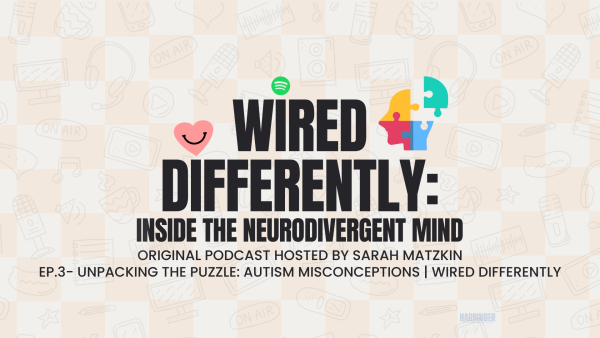Financial literacy courses should be required at Harper
I’m 18, and I don’t know how the stock market works.
I’m 18, and I don’t know whether I should get a Roth IRA or a 401k.
I’m 18, and I don’t even know how to do my taxes.
I’m sick of society pretending like I’ll just “figure it out eventually.” It’s like I was expected to just snap my fingers the moment I blew out my 18th birthday candles, and suddenly I would know everything about “adulting.”
I’m not the only one who feels this way. According to Consumer Affairs, a survey from research firm Ipsos and Country Financial found that just 15 percent of Americans said they felt ready to handle their own finances after leaving college.
It begs the question: why aren’t the basics of real-life money management taught to us in a required course?
Harper has an investment management/personal finance course. But maybe it’s best that they make it a general education requirement. Doing so will equip students with the information they need to make smarter financial decisions in college and throughout their lives.
Many college students don’t know how to properly manage their finances. According to a 2019 EVERFI survey, 36 percent of college student participants who have a credit card reported having over $1000 in credit card debt.
I’m no finance guru, but one of the very first things I learned in the personal finance class I took in high school is the importance of paying off one’s credit card balance in full each month. It’s concerning that so many college students around my age are struggling to maintain this simple habit.
The survey also found that only about 35 percent of college students took a personal finance course in high school. No wonder many college students lack smart habits. If Harper makes financial literacy a requirement, students who didn’t take personal finance in high school will learn what they need to know to manage their money throughout their life.
Even students who already took a consumer education class in high school would benefit from taking it again in college — it’s always nice to have a refresher on these essential life skills.
I took personal finance during my freshman year of high school to get my consumer education requirement out of the way. That was a long time ago, and my attitude towards the class was so negative that I just did what I needed to get a good grade. I didn’t think about the material in terms of how it would work in my everyday life.
Now that I actually need that knowledge, I’m hustling to try and educate myself on finance while maintaining a full-time course load and a part-time job. My financial ignorance is giving me anxiety, and I feel like a hamster running on a wheel trying to “catch up” to where I need to be.
I’m not the only one who meets the topic of finances with apprehension; many college students are stressed about money. According to a survey of Ohio State University students, about 50 percent said that they were worried about covering their monthly expenses.
This is alarming considering that college students have to pay for their tuition, books and other fees on top of necessities. If those students are stressed about paying their basic monthly expenses, imagine how much turmoil they could be going through to pay for college.
If Harper provides students with the financial education they need, any anxieties they have surrounding money should naturally decrease. According to a study in Japan conducted by researchers from Hiroshima University, those who understood personal finance tended to earn more and feel less stressed about growing older.
In addition to gaining basic financial knowledge, students should be given opportunities to apply what they learn and create their own budget plans. According to iGrad in an article about what college financial literacy programs lack, students can benefit from programs that allow them to assess their current financial state and make specific goals pertaining to what they want to have in the future.
Additionally, Dr. Daniel Zapp, a senior research director at EVERFI, emphasized the importance of continuous reinforcement of financial literacy concepts in a Diverse Education article.
“It has to be continuous for it to stick,” Zapp said. “None of us would have learned mathematics if we only took one course in mathematics. It’s because we took continual courses that built upon each other and reinforced the knowledge that we had already learned that we were able to develop a true understanding.”
It’s especially vital that students don’t just learn terms from flashcards and slideshows, but that they also learn how to incorporate what they’re learning into their own lives. By setting goals and creating a specific plan, students will be well-prepared to regulate their finances for years to come.
Relating to Harper College specifically, many students here transfer to a four-year university. When they do so, they’ll need to know how to save, budget and do their taxes all on their own.
Community college is a great time for students to learn about these things because the knowledge will be fresh in their minds before they head off to a university and live on their own.
I’m 18, and although there’s so much I don’t know about adulting, I know for certain that I’m investing in college in order to help myself prepare for the real world. However, it will only be a useful investment if it actually does that.

Adriana writes feature stories, news stories and editorials for The Harbinger.







